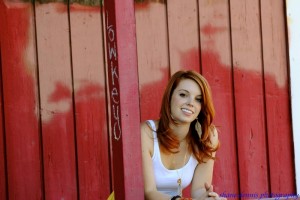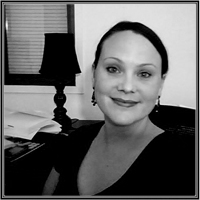Katie McCoach, Issue 6 Nonfiction Editor, discusses her experience at Superstition Review and other internships and how they gave her the experience to pursue her ideal career.
 Until my internships with Superstition Review, Ellechor Publishing, and Folio Literary Management, I had no idea where my Creative Writing and Communications degrees were going to take me. I knew I enjoyed the degrees I had chosen for myself, but what job would I end up with? I felt like the only choices I kept hearing were technical writing, teaching, or apply for MFA programs.
Until my internships with Superstition Review, Ellechor Publishing, and Folio Literary Management, I had no idea where my Creative Writing and Communications degrees were going to take me. I knew I enjoyed the degrees I had chosen for myself, but what job would I end up with? I felt like the only choices I kept hearing were technical writing, teaching, or apply for MFA programs.
Those options weren’t for me. But then the lingering question; what was?
Well, a few internships later I discovered my dream job, and the path to take to get there. Fast forward a year and here I am now, pursuing my dream. Half of my time goes to an author marketing company where I spend the day executing marketing campaigns for traditional and self-published authors, and the other half of my time is spent freelance editing as Katie McCoach Editorial. I edit and critique manuscripts, query letters, website content, and newsletters. When I look back at how in the world I got here, it comes down to six things interning did for me, so I wanted to share them here for you.
- Real Life Experience – I know you hear this all the time. Enough already, right? But it really cannot be expressed enough. The internships I held were all very different from one another and from each of them I discovered this whole world I knew nothing about. I learned how to communicate with authors, how to hone instinct in selling, selecting, and editing, and I saw the different roles each person can play in the publishing industry. Many of the things I learned in my internships I would never have learned by just my degree alone.
- Discover What You Want – A couple years ago, I was the Nonfiction Editor for Issue 6 of Superstition Review. Here I learned the in and outs of a literary magazine: how to communicate with authors and pique interest, how to develop an instinct for selecting the best work for the issue that season, and I had a chance to read amazing work by so many brilliant writers. At one point, I was asked to give comments on one of the pieces, to see if there were any suggestions or feedback we could contribute. This was my favorite part, and it wasn’t even one of my typical duties. That’s when the first hint of what I wanted to do as a career began to hit me.
- Conduct the Ultimate Interview – Internships are jobs. Although they are temporary and often times only a few months long, they are still jobs. This is your chance to conduct the ultimate interview – how does this job fit with your personality? How are your skills best utilized? Can you see yourself here in five years? How could you move up in the industry? I worked for a literary magazine, publishing company, and literary agency. I saw very different roles of the publishing industry, and from it I discovered where I fit best.
- Path to Your Dream Job – Every person in your industry started somewhere, maybe even interning exactly where you are now. So ask them – how did they get their job? What about their boss’s boss? The path to your dream job becomes readily available to you as an intern and this is your chance to begin it.
- Perspective – I chose to intern at companies that were all related to publishing and from this I saw different parts of the industry that I could have never seen if I hadn’t worked in the areas I did. Interning at Superstition Review I saw the literary magazine side of publishing. The publications in literary magazines across the country influence contests and grants. These contests can mean referrals for lit agents, which in turn can mean a sale to an editor, and the next book a publishing company picks up. There is much more to it than that of course, but I now am able to see the industry as a whole, which gives me perspective, especially in relation to the job I chose to pursue.
- Connections – This is another one of those things we hear a lot. I currently live in Los Angeles and I am surrounded by the film and TV industry. I see first-hand how connections are the only way to establish your place in that industry. The same goes for publishing, though depending on the path you choose, it might not be quite as cutthroat. When I first moved to LA I attended one of those kind-of-awkward-but-you-push-through-it networking events. I was wary at first, and then I met someone who was starting her own marketing business. She needed an editor for her website content and what do you know, here I was, an editor. On top of gaining business with her, she also had a friend who was a literary agent, and that agent knew other freelance editors, and by then my connections had tripled. This happened just from a two-hour networking event, so imagine what a semester-long internship can do.
Interning was definitely the right choice for me and my career path, and – I have to cliché it up right here – I would not be in the position I am today without it.
If you are a current or past intern, what has interning done for you? If you are debating interning, what things do you hope to gain from the experience?
Katie McCoach graduated from Arizona State University in May of 2011 with her Bachelor’s of Arts in Creative Writing and Communications. She currently resides in Los Angeles, CA as a freelance editor. She has had essays published in TrainWrite and Kalliope. You can visit her at www.katiemccoach.com and on Twitter @katiemccoach

